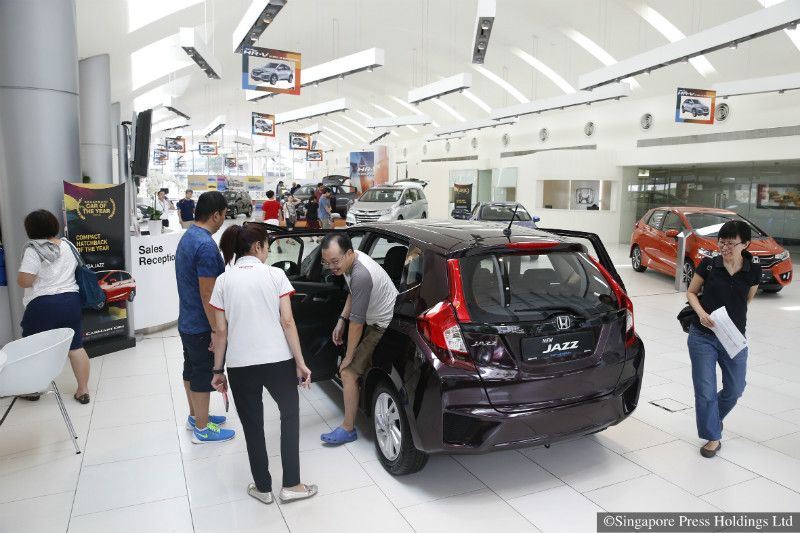

Timing is crucial when it comes to purchasing a car, as the right moment can lead to significant savings. Let’s learn more about this topic below with Monkey Mart. Understanding the best time to buy a car can help you secure a great deal and maximize your budget. In this article, we’ll explore various factors that influence car prices and provide insights on when to make your purchase for the best savings.
Car prices fluctuate throughout the year, and being aware of seasonal trends can help you save money on your purchase. Generally, the end of the year is considered one of the best times to buy a car. Dealerships are often eager to clear out inventory to make room for new models and meet annual sales targets.
December, in particular, can offer excellent opportunities for savings. Many dealerships run year-end promotions and are more willing to negotiate prices to boost their sales figures before the year closes. The week between Christmas and New Year’s Day is often referred to as the “golden week” for car buying, as dealers may offer steep discounts to meet their quotas.
However, it’s not just the end of the year that presents opportunities for savings. The end of each month can also be a good time to buy, as salespeople may be more motivated to close deals to meet their monthly targets. Additionally, holiday weekends throughout the year, such as Memorial Day, Fourth of July, and Labor Day, often feature special promotions and discounts.
Read more: How to Plan for Financial Goals (Short-Term & Long-Term)
Another crucial factor to consider when timing your car purchase is the transition between model years. Manufacturers typically release new models in late summer or early fall, which can create opportunities for savings on outgoing models.
As new models arrive at dealerships, there’s often pressure to clear out the previous year’s inventory. This can lead to significant discounts on older models, especially if there haven’t been major changes between model years. If you’re not particular about having the latest features or redesigns, buying a car from the outgoing model year can result in substantial savings.
It’s important to note that the exact timing of model year transitions can vary between manufacturers and even between different models from the same brand. Researching the release schedules for the specific makes and models you’re interested in can help you pinpoint the best time to make your purchase.
The broader economic landscape and market conditions can also influence car prices and the best time to buy. During economic downturns or periods of slower sales, dealerships may be more willing to offer discounts or incentives to attract buyers.
Keep an eye on industry news and trends. If a particular manufacturer or model is experiencing declining sales, there may be opportunities for better deals. Similarly, if there’s an oversupply of certain vehicle types in the market, such as sedans in recent years as SUVs have gained popularity, you might find more competitive pricing on those models.
Interest rates also play a role in the overall cost of buying a car, especially if you plan to finance your purchase. When interest rates are low, financing becomes more affordable, potentially allowing you to get a better car for your budget. Conversely, when rates are high, it might be worth considering a cash purchase or waiting for rates to decrease if possible.
In the digital age, technology has revolutionized the car-buying process, providing consumers with powerful tools to research and compare prices. Utilizing these resources can help you identify the best time to buy and secure the most favorable deal.
Online car-buying platforms and comparison tools allow you to track prices over time, compare offers from multiple dealerships, and even negotiate remotely. Many of these platforms provide historical pricing data, enabling you to identify trends and determine whether current prices are competitive.
Additionally, subscribing to email newsletters from dealerships and manufacturers can keep you informed about upcoming sales events and special promotions. Some car-buying services offer price alerts, notifying you when the vehicle you’re interested in drops to your target price.
While timing is important, being patient and well-prepared can be equally crucial in securing a great deal on a car. Rushing into a purchase or feeling pressured to buy immediately can often lead to overpaying or settling for a less-than-ideal vehicle.
Take the time to thoroughly research the models you’re interested in, including their features, reliability ratings, and typical pricing. Understanding the fair market value of the car you want puts you in a stronger negotiating position, regardless of when you choose to buy.
It’s also wise to have your financing arranged before visiting dealerships. Getting pre-approved for a car loan gives you a clear budget and can help you avoid being swayed by potentially less favorable financing options offered at the dealership.
When discussing the best time to buy a car, it’s worth considering the used car market as well. Used car prices can be influenced by different factors than new car prices, and there may be opportunities for significant savings.
Generally, the used car market experiences less dramatic seasonal fluctuations than the new car market. However, you might find better deals on used cars in the late summer and early fall, as this is when many people trade in their vehicles to purchase new models.
The end of the year can also be a good time to buy a used car, as dealerships may be motivated to clear out inventory. Additionally, January and February tend to be slower months for car sales overall, which could lead to more competitive pricing on used vehicles.
When shopping for used cars, it’s crucial to research the vehicle’s history and condition thoroughly. Tools like vehicle history reports can provide valuable information about a car’s past, including accidents, maintenance records, and ownership history.
Understanding common dealership tactics can help you navigate the car-buying process more effectively, regardless of when you choose to make your purchase. Being aware of these strategies can help you maintain control of the negotiation and secure the best possible deal.
One common tactic is the end-of-month push for sales. While this can indeed lead to better deals, be cautious of salespeople who use high-pressure tactics or create a false sense of urgency. Remember that there will always be another opportunity to buy a car, and it’s better to walk away from a deal that doesn’t feel right than to make a hasty decision you might regret.
Dealerships often use the “four-square” method during negotiations, which can be confusing for buyers. This method involves discussing the trade-in value, purchase price, down payment, and monthly payment simultaneously. To avoid becoming overwhelmed, focus on negotiating one aspect at a time, starting with the overall purchase price of the vehicle.
Be wary of dealerships that try to shift the focus from the car’s price to the monthly payment. While a low monthly payment might seem attractive, it could result in paying more over the life of the loan due to a longer term or higher interest rate.
Read more: 10 Frugal Living Tips That Save You Thousands Per Year
Regardless of when you choose to buy a car, it’s crucial to thoroughly test drive and inspect any vehicle you’re considering. This is especially important for used cars but applies to new vehicles as well.
During a test drive, pay attention to how the car handles, accelerates, and brakes. Listen for any unusual noises and check that all features and controls work properly. If possible, test the vehicle in various driving conditions, including highway driving and city traffic.
For used cars, consider having a trusted mechanic perform a pre-purchase inspection. This can uncover any potential issues that might not be immediately apparent and could save you from costly repairs down the line.
In conclusion, while there are certainly optimal times to buy a car that can lead to significant savings, the best time to buy ultimately depends on your individual circumstances and needs. By understanding market trends, being well-prepared, and maintaining patience throughout the process, you can secure a great deal on your next vehicle purchase.
Remember that a car is a significant investment, and taking the time to research, compare options, and negotiate effectively can lead to substantial savings in the long run. Whether you choose to buy during end-of-year sales, take advantage of model year transitions, or simply wait for the right opportunity to arise, being an informed and prepared buyer is key to getting the best possible deal on your next car.